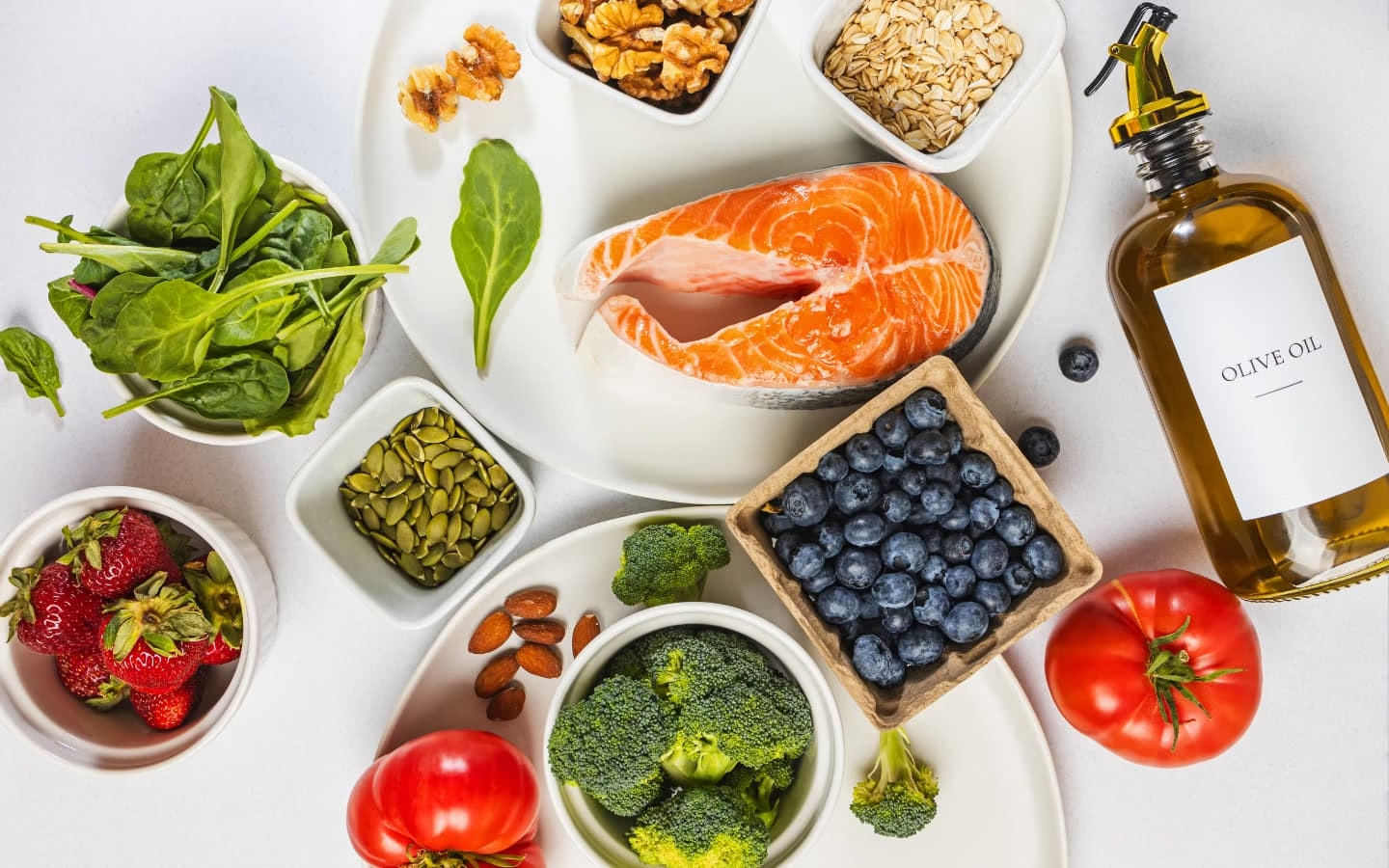Why Nutrition Matters in Cancer Prevention
Your diet plays a critical role in overall health, including cancer prevention. Certain foods are packed with nutrients and antioxidants that can reduce inflammation, boost your immune system, and help fight free radicals, which are known to damage cells and contribute to cancer. Incorporating anti-cancer foods into your meals is an easy and effective way to take control of your health while enjoying delicious, nutrient-rich options.
In this article, we’ll explore the best anti-cancer foods, their benefits, and practical tips for adding them to your daily routine.
The Role of Antioxidants in Fighting Cancer
Antioxidants are compounds that protect cells from damage caused by free radicals. Free radicals are unstable molecules that can harm DNA and lead to the development of cancer. By neutralizing free radicals, antioxidants play a key role in maintaining cellular health.
Foods Rich in Antioxidants:
- Berries: Blueberries, raspberries, and strawberries are rich in anthocyanins, which reduce oxidative stress.
- Dark Chocolate: Contains flavonoids, which may help fight cell damage.
- Spinach: High in vitamins C and E, which support cellular repair.
- Green Tea: Packed with catechins, a type of antioxidant that protects cells from harm.
Incorporating these foods into your diet not only supports cancer prevention but also improves overall well-being.
Antioxidants are compounds that protect cells from damage caused by free radicals. Studies from Healthline suggest that foods rich in antioxidants, such as berries and spinach, can reduce oxidative stress and support overall health.
Cruciferous Vegetables: Nature’s Cancer Fighters
Cruciferous vegetables are loaded with phytochemicals, such as sulforaphane, which have been shown to combat cancer at the cellular level. These vegetables also contain fiber, which supports digestive health and removes toxins from the body.
Best Cruciferous Vegetables:
- Broccoli: Rich in sulforaphane, which helps detoxify harmful compounds.
- Cauliflower: Contains glucosinolates, which support liver detoxification.
- Kale: High in vitamins A and C, as well as lutein and zeaxanthin.
- Cabbage: Offers powerful antioxidants like indole-3-carbinol.
Steam or lightly sauté these vegetables to retain their nutrients while making them more palatable.
Omega-3 Fatty Acids for Inflammation and Immunity
Chronic inflammation is linked to the development of cancer. Omega-3 fatty acids are healthy fats that reduce inflammation and support immune function, making them essential in a cancer-preventative diet.
Top Omega-3 Sources:
- Salmon: A fatty fish rich in EPA and DHA, two powerful omega-3s.
- Chia Seeds: Provide plant-based omega-3s and are easy to add to smoothies or oatmeal.
- Walnuts: Offer anti-inflammatory benefits and are a great snack option.
Consuming omega-3s regularly can reduce inflammation, protect against cell damage, and promote overall health.
Superfoods to Include in Your Diet
Some foods are particularly effective in preventing cancer due to their high nutrient density and unique properties.
Top Superfoods for Cancer Prevention:
- Turmeric: Contains curcumin, a compound known for its anti-inflammatory and anti-cancer properties. Add it to soups, stews, or golden milk.
- Garlic: Contains sulfur compounds that may reduce the risk of stomach and colorectal cancers.
- Tomatoes: Rich in lycopene, a powerful antioxidant that may protect against prostate cancer.
- Green Tea: Its catechins and polyphenols support cell repair and prevent oxidative stress.
Incorporating these superfoods into meals is an easy way to boost your intake of cancer-fighting nutrients.
Practical Tips for Adding Anti-Cancer Foods to Your Routine
- Start Your Day with a Smoothie: Blend spinach, berries, chia seeds, and green tea for a nutrient-packed breakfast.
- Make Colorful Salads: Add kale, tomatoes, and broccoli with a drizzle of olive oil.
- Snack Smart: Choose walnuts, dark chocolate, or dried berries for a healthy bite.
- Cook with Spices: Use turmeric and garlic in soups, stir-fries, or roasted vegetables for added flavor and health benefits.
- Try Meatless Mondays: Focus on plant-based meals featuring lentils, tofu, and cruciferous vegetables.
For more tips on healthy eating habits, read our article on The Role of Nutrition in Managing Stress to learn how diet impacts overall well-being.
Conclusion: Eat Well, Live Well
Adding anti-cancer foods to your diet is a simple yet powerful way to take charge of your health. By incorporating antioxidant-rich fruits, omega-3 fatty acids, cruciferous vegetables, and superfoods into your meals, you can reduce inflammation, protect your cells, and support long-term wellness.
Start small by adding a few of these foods to your weekly meal plan, and enjoy the benefits of a healthier, more vibrant life. Remember, your food choices can make a significant difference in preventing disease and promoting overall well-being.

